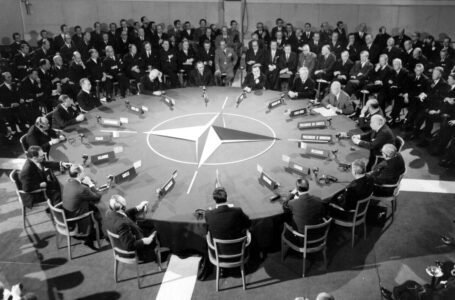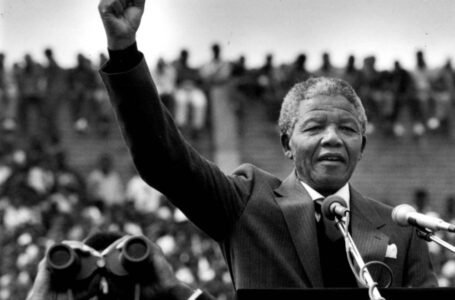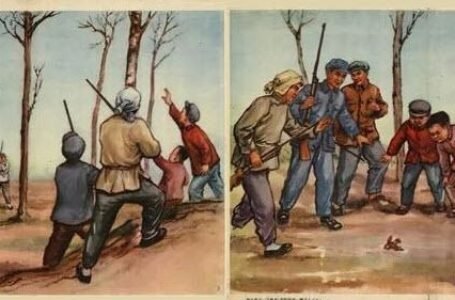Kanaiyalal Maneklal Munshi: A Luminary in Indian Literature, Law, and Politics
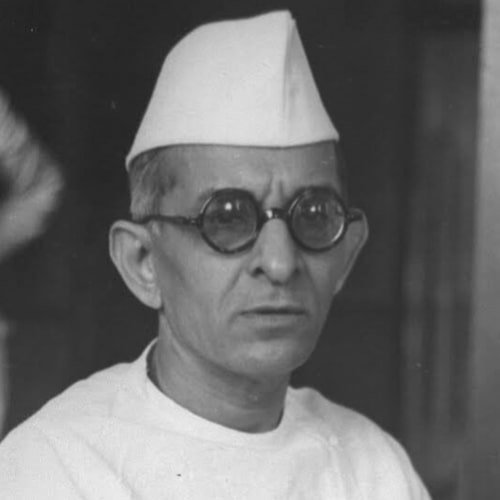
Kaniyalal Maneklal Munshi, commonly known as K. M. Munshi, was a polymath whose contributions spanned literature, law, and politics. Born in the late 19th century, Munshi’s work significantly impacted the cultural and political landscape of India. This blog explores his multifaceted life, highlighting his achievements and lasting legacy.
Early Life and Education
Munshi was born on December 30, 1887, in Bharuch, Gujarat. He belonged to a traditional Gujarati family, deeply rooted in cultural and religious values. His early education was marked by a keen interest in literature and history, which would later influence his literary works.

Munshi pursued his higher education at the Baroda College (now Maharaja Sayajirao University of Baroda), where he developed a strong foundation in the humanities. He later studied law at the Government Law College in Bombay (now Mumbai), where he was mentored by Sir Pherozeshah Mehta, a prominent lawyer and political leader. This mentorship played a crucial role in shaping Munshi’s career in law and politics.
Legal Career and Political Involvement
Munshi began his legal career in Bombay, quickly establishing himself as a formidable lawyer. His legal acumen and eloquence in court earned him a reputation as one of the leading lawyers of his time. However, Munshi’s aspirations extended beyond the courtroom; he was deeply influenced by the socio-political environment of pre-independence India and was drawn to the Indian freedom struggle.
He joined the Indian National Congress (INC) and became an active participant in the independence movement. Munshi was deeply influenced by Mahatma Gandhi and his principles of non-violence and civil disobedience. He participated in various freedom movements, including the Salt Satyagraha and the Quit India Movement, and was imprisoned multiple times for his involvement in these activities.
Munshi’s political career was marked by his versatility and pragmatism. He was a member of the Bombay Legislative Council and later served as the Home Minister of Bombay Presidency. His tenure as Home Minister was notable for his efforts to maintain communal harmony and implement progressive reforms.
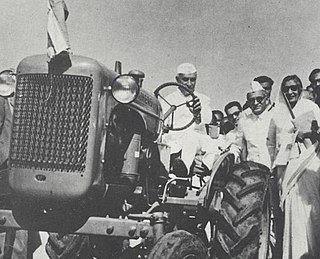
Contribution to the Constituent Assembly
One of Munshi’s most significant contributions to India’s political landscape was his role in the Constituent Assembly, where he was instrumental in drafting the Indian Constitution. As a member of the Drafting Committee, Munshi played a pivotal role in shaping various provisions of the Constitution, ensuring that it reflected the democratic and secular values of the newly independent nation.
Munshi was particularly vocal about the inclusion of fundamental rights in the Constitution, advocating for the protection of individual liberties and freedoms. His legal expertise and commitment to justice were evident in his contributions to the drafting process. The Preamble to the Constitution, which encapsulates the essence of the Indian republic, bears the imprint of Munshi’s vision and ideals.
Literary Contributions
Munshi’s literary career was as illustrious as his political and legal pursuits. He was a prolific writer, authoring numerous novels, short stories, and essays in Gujarati and English. Munshi’s literary works are celebrated for their rich portrayal of Indian culture, history, and mythology.
One of Munshi’s most famous literary works is the historical novel series “Krishnavatara.” This series, based on the life and exploits of Lord Krishna, is a blend of historical fiction and mythology, and it remains a classic in Indian literature. Munshi’s storytelling, characterized by vivid descriptions and intricate plots, brings to life the ancient Indian civilization and its timeless values.
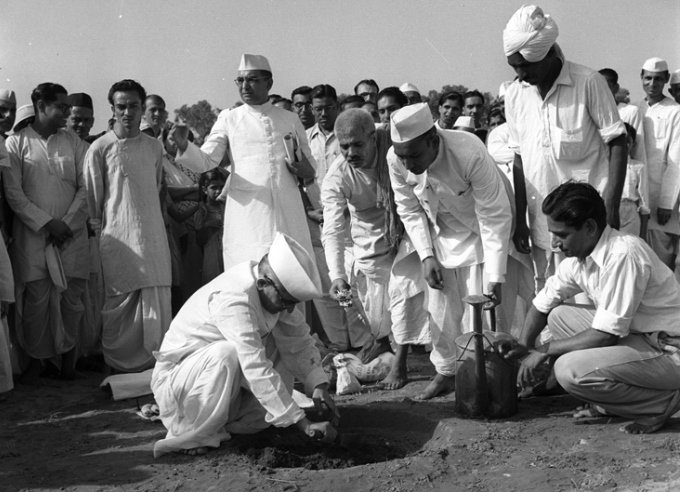
Another notable work is “Patan ni Prabhuta” (The Glory of Patan), a historical novel set in the medieval period of Gujarat. The novel, which depicts the rise and fall of the Solanki dynasty, is a testament to Munshi’s deep understanding of Indian history and his ability to weave historical facts into compelling narratives.
Munshi also founded the Bharatiya Vidya Bhavan in 1938, an educational trust aimed at promoting Indian culture and heritage through education and research. The Bhavan has since grown into a significant cultural institution, with branches across India and abroad, offering courses in various disciplines, including languages, arts, and sciences.
Environmental and Cultural Preservation
Munshi’s vision extended to environmental conservation and cultural preservation. He was an ardent advocate for the protection and rejuvenation of India’s natural resources and cultural heritage. Munshi’s efforts in these areas were pioneering, and his legacy continues to inspire environmental and cultural initiatives in India.
Munshi was instrumental in the afforestation of the Baroda region and the establishment of the Van Mahotsav (Tree Plantation Festival) in 1950. Van Mahotsav, celebrated annually in July, has become a nationwide movement aimed at increasing the green cover and raising awareness about the importance of trees and forests.

Munshi also played a crucial role in the restoration of Somnath Temple, a historic and sacred Hindu temple in Gujarat. The temple, which had been destroyed and rebuilt several times over the centuries, was in ruins when Munshi undertook its restoration in the 1950s. His efforts led to the reconstruction of the temple, preserving an important cultural and religious landmark for future generations.
Role in the Establishment of Educational Institutions
Munshi’s commitment to education and knowledge dissemination was evident in his establishment of several educational institutions. Besides founding Bharatiya Vidya Bhavan, Munshi was instrumental in the creation of other institutions aimed at promoting higher education and research.
He was one of the key figures behind the establishment of Sardar Patel University in Gujarat, named after his close associate and fellow freedom fighter, Sardar Vallabhbhai Patel. The university has since become a prominent center for higher education, offering a wide range of undergraduate and postgraduate programs.
Munshi’s efforts in the field of education were driven by his belief in the transformative power of knowledge and the need to equip the younger generation with the skills and values necessary for nation-building. His vision for education was holistic, encompassing not just academic excellence but also cultural and ethical development.
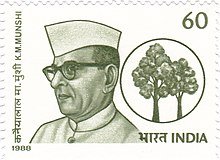
Personal Life and Values
Munshi’s personal life was marked by his adherence to the values of integrity, humility, and self-discipline. He was known for his simplicity and approachability, traits that endeared him to people from all walks of life. Munshi’s dedication to his family, friends, and colleagues was unwavering, and he maintained strong relationships with many prominent figures of his time.
Munshi’s spiritual inclination was reflected in his writings and his life. He was deeply influenced by the teachings of Swami Vivekananda and the Bhagavad Gita, which shaped his worldview and guided his actions. Munshi believed in the importance of inner strength and self-reliance, values that he sought to instill in others through his work and writings.
Legacy and Impact
Munshi’s legacy is multifaceted, encompassing his contributions to literature, law, politics, education, and environmental conservation. His life’s work has had a lasting impact on various aspects of Indian society, and his ideals continue to inspire individuals and institutions alike.
 Munshi’s literary works remain popular and continue to be read and studied for their historical and cultural significance. His novels and essays provide valuable insights into India’s rich heritage and serve as a bridge connecting the past with the present.
Munshi’s literary works remain popular and continue to be read and studied for their historical and cultural significance. His novels and essays provide valuable insights into India’s rich heritage and serve as a bridge connecting the past with the present.
In the field of education, Munshi’s vision and efforts have left an indelible mark. Bharatiya Vidya Bhavan and other institutions established by him continue to promote the values of knowledge, culture, and ethics, shaping the minds and characters of countless students.
Munshi’s contributions to the Indian freedom struggle and the drafting of the Constitution are celebrated as crucial elements of India’s journey to independence and its development as a democratic republic. His role in these historic events underscores his dedication to the principles of justice, equality, and national unity.

Conclusion
Kaniyalal Maneklal Munshi was a remarkable individual whose life and work spanned multiple domains, each marked by significant achievements and contributions. From his early years as a promising student to his roles as a lawyer, freedom fighter, politician, writer, and educator, Munshi’s journey was one of relentless pursuit of excellence and service to the nation.
Munshi’s legacy is a testament to the power of dedication, vision, and integrity. His contributions continue to influence and inspire, reminding us of the enduring value of cultural preservation, environmental conservation, and the pursuit of knowledge. As we reflect on his life, we are reminded of the importance of striving for a better future while honoring and preserving the rich heritage of our past.
Munshi’s story is a source of inspiration for all those who seek to make a positive impact on society. His life exemplifies the potential for individuals to drive change and contribute meaningfully to the progress and well-being of their communities and the nation as a whole.
